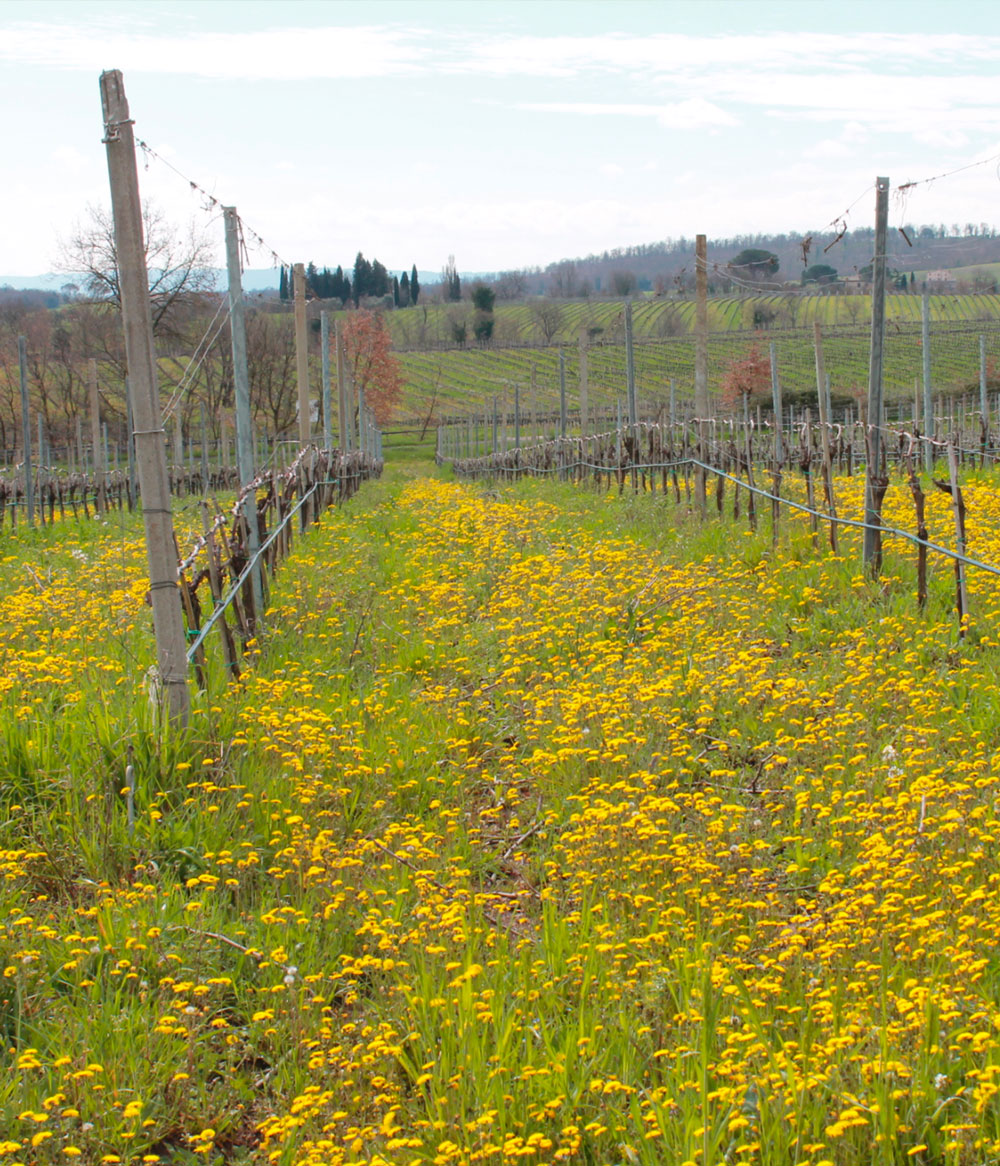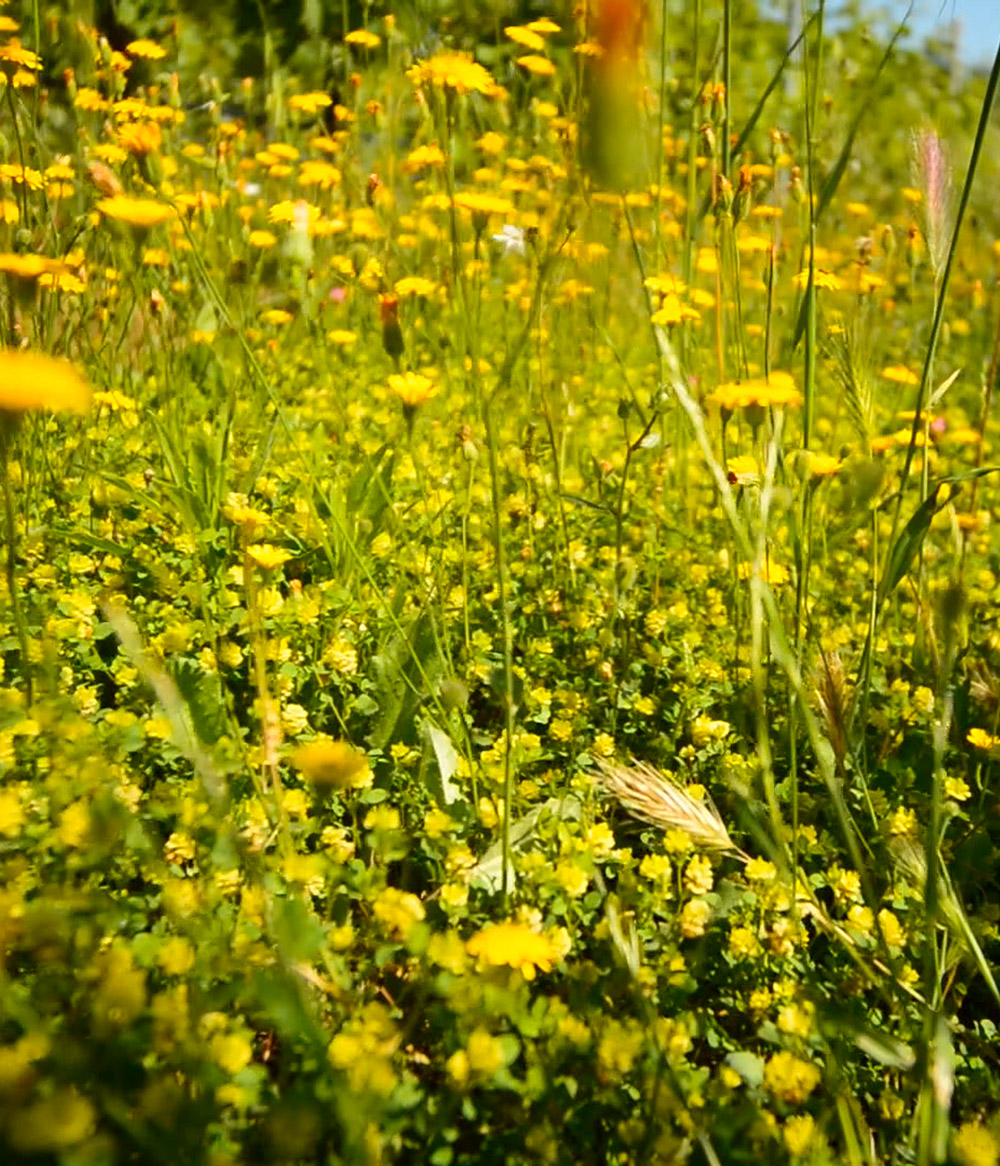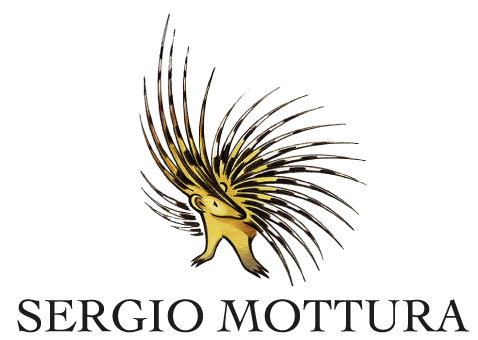Our history
``Sergio Mottura pioneer and visionary``
1933
Alessandro Mottura, a civil engineer from Piedmont, bought the estate.
1963
Sergio Mottura, at the age of 21, moved from Torino to Civitella d'Agliano and started managing the estate.
1968
Our first modern vineyard was planted in the area called Ombrico. This Grechetto came from old "married vines” (a grape growing technique that uses trees as support), grown in one of our 21 mezzadrie (sharecropping).
1970
The "Poggio della Costa" vineyard was born.
1984
The first vintage of our Classic Method Spumante was produced.
1990
First year of bottling for the Orvieto Secco and Grechetto "Poggio della Costa" wines.
1991
Our winery began the conversion to organic farming; this was completed in 1996 by obtaining the official certification.
1994
The first 5 barriques marked "Louis Latour" were filled with vintage Grechetto.
2003
The 2004 Italian Wines guide, by Gambero Rosso and Slow Food, was published. Our Grechetto "Latour a Civitella" was the first white wine from Lazio to obtain the 3 Bicchieri award.
2005
The "Stelvin" screw cap started being used, alongside the cork stopper, when bottling all our white wines.
2012
Sergio Mottura was named "Winemaker of the Year" in the Italian Wines guide published by Gambero Rosso.
2018
Chestnut tannin was introduced to control downy mildew, replacing copper-based fungicides.
The Estate
``Deep Roots, Authentic Future``
In the vibrant heart of the Tuscia area near Viterbo, where the borders between Lazio and Umbria blur: it is here that Sergio Mottura’s estate, with its 37 hectares of lush vineyards, is located. An agricultural landscape set in a 120-hectare mosaic that includes olive groves, cereal fields, meadows and woods, creating an ecosystem of biodiversity and beauty. A short distance away, the shores of Lake Bolsena – the volcanic giant that marks the soul of the soil with its thousand-year history – offer a rich geological heritage that allows us to produce wines with an unmistakable character.
When the end of sharecropping required a new vision for production, Sergio Mottura emerged as a pioneer, breathing new life into the winemaking tradition of these lands. His estate became a bastion of dedication to the local wine culture, with the Orvieto DOC symbolizing the historical legacy and the Grechetto representing the bold bet for the future.
Sergio Mottura, fascinated by Grechetto since his arrival, captured the essence and potential of this variety, focusing on its olfactory expressivity and vigorous gustatory intensity, discovering – and falling in love – with its vibrant longevity. Through years of passionate work and meticulous studies, Sergio Mottura has elevated Grechetto to a symbol of the excellence of his winery, creating an indissoluble bond that intertwines the history of the vine with that of the land where it was born. Today, that bond has been transformed into a perfect union that proves the harmony between men’s work and the generosity of nature, thus confirming Grechetto as a symbol of Tenuta Mottura and its priceless territory.

1933
THE WINE CELLLAR
``Civitella d'Agliano``
The wine production of the estate is divided into two company hubs, separated by four kilometers only, which together complete the life cycle of the wines, from the land to the table.
The first one, located in Strada Ombricolo, beats to the rhythm of the surrounding vineyards: it is the operations center where the grapes begin their transformative journey. Here in 1998, a modern and functional factory was built, equipped with advanced technologies for winemaking, bottling, packaging and storage, with a capacity of 2500 hl. A photovoltaic system guarantees energy self-sufficiency, while wastewater is treated with phyto-evapotranspiration systems.
The second hub of the company is located in the heart of Civitella d’Agliano. Nowadays the historic cellar, set in a seventeenth-century building which has been the core of the estate for centuries, is the place where the wine is aged. Here, in the bowels of the earth, tuff caves offer an ideal sanctuary for the refinement of still wines in barriques and steel, as well as for the maturation of Spumante in the bottle thanks to a stable temperature of 12°C. Today this building, full of history and stories, also houses the agritourism La Tana dell’Istrice and the rooms used for visits and tastings, offering an immersive experience in the culture and winemaking tradition of the estate.
Sustainability
``Beyond organic``
Towards the end of the 1980s, Sergio Mottura found himself at a crucial crossroads that would redefine the future of his agricultural business. The experiences accumulated by working on a varied combination of crops, helped him understand that the time had come to place nature at the center of his project. The turning point came in 1991 with the introduction of the European Community Regulation no. 2092/91: an era that marked the dawn of organic production in European agriculture. This regulation provided the framework to revolutionize the approach towards more harmonious and environmentally friendly agricultural practices.
After a five-year transition period, in 1996 the estate was officially recognized for its organic practices. Since then, the company has vigorously embraced a cultivation ethos that promotes ecological respect and balance. Techniques such as spontaneous grassing, the absence of chemical fertilizers and the adoption of natural solutions such as chestnut tannin and mist-sprayers with recovery system, marked a new era in the company’s history. These practices, carefully carried out by a dedicated team, are aligned with the commitment to take care of the land in a loving and respectful manner.
Nowadays, as the rules that norm organic farming are stabilized, the attention is shifting toward a broader conception of sustainability, encompassing environmental, economic, ethical and social dimensions. Tenuta Mottura is actively working to integrate three decades of organic experience into a broader context, aiming not only at soil protection but also at the adoption of sustainable standards on all fronts. This approach confirms the evolution of a commitment that transcends simple cultivation, looking towards a future in which harmony with the environment becomes the cornerstone of every business decision.


